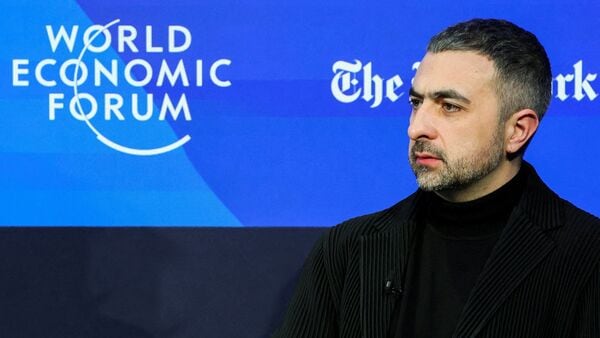Key Takeaways
- Microsoft AI CEO warns superintelligence should be an “anti-goal”
- Predicts AGI could arrive within 5 years with human-level performance
- Calls for regulations to ensure AI works with humans, not autonomously
Microsoft’s AI chief Mustafa Suleyman has issued a stark warning about the dangers of AI superintelligence, suggesting it should be treated as an “anti-goal” rather than an objective. In a recent podcast appearance, he expressed concerns about creating systems that could operate independently of human control.
The Superintelligence Warning
During an episode of the “Silicon Valley Girl Podcast,” Suleyman defined superintelligence as AI capable of self-improvement, setting its own goals, and acting independently. “It does not feel like a positive vision of the future,” he stated, adding that containing such systems or aligning them with human values would be extremely difficult.
He clarified the relationship between Artificial General Intelligence (AGI) and superintelligence, noting: “You can think of AGI as a step before maybe super intelligence, but roughly speaking, they’re used fairly interchangeably.”
Microsoft’s Human-Centric Approach
Suleyman revealed that Microsoft is developing what he calls a “humanist version” of superintelligence designed to be “aligned to our interests, on our team, in our corner backing us up.” This approach contrasts with the autonomous superintelligence he warned against.
AGI Timeline and Capabilities
The Microsoft executive agreed with Google DeepMind CEO Demis Hassabis’ prediction that AGI could be achieved within five years. He believes AI will reach human-level performance across most tasks during this timeframe.
Current AI models already outperform humans in several areas including:
- Summarization and translation
- Transcription and research
- Document writing and poetry
Suleyman noted AI is progressing toward matching human capabilities in project management, marketing, and HR roles. He predicted this advancement will “fundamentally change work in the most profound way” and alter the types of work humans perform.
Democratization and Competition
The Microsoft AI chief highlighted how AI is “democratising access to intelligence,” which he believes will spark “unbelievable competition” as the gap between ideas and their realization collapses. “People are just going to be thinking new companies into existence, new products, new pieces of poetry,” he observed.
Regulatory Needs
Suleyman emphasized the urgent need for and guardrails to ensure autonomous AI agents collaborate with humans rather than operating independently. This regulatory framework becomes increasingly crucial as AI capabilities advance toward human-level performance.




